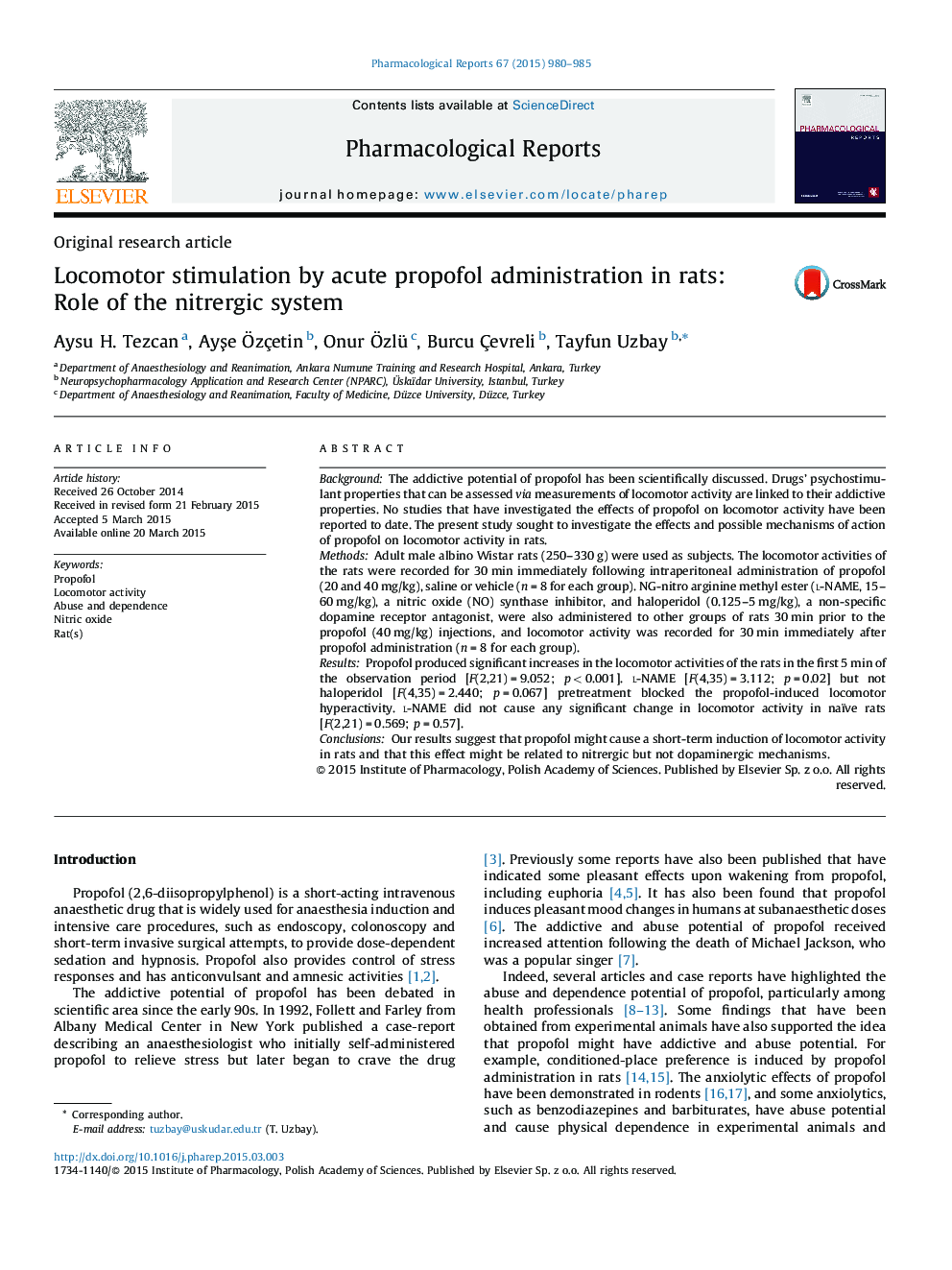| Article ID | Journal | Published Year | Pages | File Type |
|---|---|---|---|---|
| 2011036 | Pharmacological Reports | 2015 | 6 Pages |
BackgroundThe addictive potential of propofol has been scientifically discussed. Drugs’ psychostimulant properties that can be assessed via measurements of locomotor activity are linked to their addictive properties. No studies that have investigated the effects of propofol on locomotor activity have been reported to date. The present study sought to investigate the effects and possible mechanisms of action of propofol on locomotor activity in rats.MethodsAdult male albino Wistar rats (250–330 g) were used as subjects. The locomotor activities of the rats were recorded for 30 min immediately following intraperitoneal administration of propofol (20 and 40 mg/kg), saline or vehicle (n = 8 for each group). NG-nitro arginine methyl ester (l-NAME, 15–60 mg/kg), a nitric oxide (NO) synthase inhibitor, and haloperidol (0.125–5 mg/kg), a non-specific dopamine receptor antagonist, were also administered to other groups of rats 30 min prior to the propofol (40 mg/kg) injections, and locomotor activity was recorded for 30 min immediately after propofol administration (n = 8 for each group).ResultsPropofol produced significant increases in the locomotor activities of the rats in the first 5 min of the observation period [F(2,21) = 9.052; p < 0.001]. l-NAME [F(4,35) = 3.112; p = 0.02] but not haloperidol [F(4,35) = 2.440; p = 0.067] pretreatment blocked the propofol-induced locomotor hyperactivity. l-NAME did not cause any significant change in locomotor activity in naïve rats [F(2,21) = 0.569; p = 0.57].ConclusionsOur results suggest that propofol might cause a short-term induction of locomotor activity in rats and that this effect might be related to nitrergic but not dopaminergic mechanisms.
